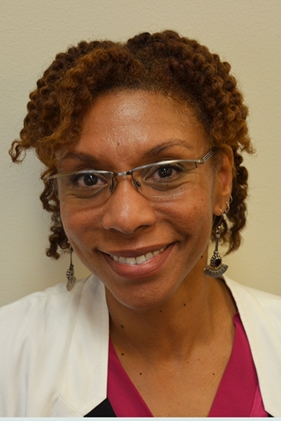Social Work Doctoral Student Spotlight: Empowering communities to overcome environmental health challenges

Nikita Buckhoy
Empowering communities to overcome environmental health challenges
Professional Biography
A macro-level social work practitioner, Nikita has worked for nearly 20 years in community-based program development, administration and evaluation. After receiving her B.A in anthropology from University of Michigan and her M.A. in health administration and policy and maternal and child health from University of Chicago, Nikita served as director of gay and lesbian outreach programs for Chicago-based nonprofit Horizons Community Services. She then served as associate director of grants and policy for Heartland Health Outreach, a nonprofit providing comprehensive health care services for low-income, homeless, immigrant, and refugee populations throughout the Chicago region. After moving to Detroit in 2005, Nikita worked as an independent contractor providing grant writing and management services to various Southeast Michigan nonprofit organizations. Since 2007, she has served as program director for the community problem-solving nonprofit City Connect Detroit, where she oversees grants and resources development, convenes and guides coalitions, and provides field placement instruction for the Wayne State School of Social Work. Nikita has a Graduate Certificate in Social Welfare Research & Evaluation from Wayne State.
Research/Dissertation
Nikita's research is concerned with policy, advocacy, and direct service in community health settings and around community health issues. She hopes to enhance social work's recognition of, and responses to, environmental health threats by advancing environmental health literacy and advocacy in vulnerable communities. To this end, Nikita has explored activism after the environmental disaster in Bhopal, India, examined American women's activism in the HIV/AIDS movement, designed a study to describe Michigan social workers' attitudes toward environmental justice, and traced Tobacco Use Disorder as it has evolved in the Diagnostic and Statistical Manual of Mental Disorders, examining the roles of physicians and public health officials and the rise of anti-smoking advocacy. She conducted a comparative case study of demolition-related codes, ordinances, by laws and bid specifications (as an indicator of community health protection) in Detroit, Cleveland and Windsor, ON. She also conducted a policy analysis, published in Environmental Justice in 2015, of a Clinton Administration executive order requiring federal agencies to develop an environmental justice strategy considering the impact of federal policies. For her future research, Nikita is considering a qualitative examination of how communities grappling with environmental health challenges learn from one another's outreach, advocacy, education, and negotiation strategies.
Why It's Important
"Social workers bring something very unique to the conversation around environmental health and particularly to interventions for families and communities facing environmental health risks," said Nikita, who grew up in a Chicago community plagued by landfill emissions and has suffered from chronic asthma since the age of two. "Looking at the recent crisis in Flint, it's clear that the lack of response to questions and complaints about the water was due in large part because city and state decision makers didn't look at the city's residents and see themselves as their peers. Because social workers work with their clients and organizations in a variety of environments, they are better positioned to see and react quickly to signs of a problem." In particular, Nikita sees social workers as ideal facilitators of community benefit agreements, which are contracts signed by community groups and real estate developers that require the developer to provide specific amenities or mitigations to ensure community-based development projects promote environmental and economic justice.
Faculty Support
Assistant Social Work Professor Rick Smith, who serves as Nikita's advisor, said Nikita "quickly distinguished herself by mastering theoretical concepts" and by her determination "to learn how research can lead to better programs." Nikita said she has learned a great deal from social work faculty about anthropological research methods such as ethnography, about policy and advocacy strategies, and about community organizing. "Often the worlds of practice and academia are perceived to be exceedingly different, and it's important to me to connect the two," Nikita said. "Wayne State is incredibly unique in its urban mission and in getting scholars out of the ivory tower and into the surrounding communities. That's a big selling point to social workers who want doctoral training without leaving their community practice behind."
To read about other social work doctoral students and the research they are pursuing, click here: http://socialwork.wayne.edu/phd/student-spotlight.php